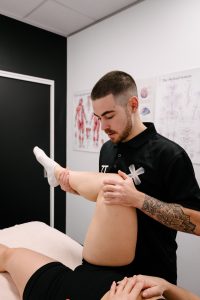Interested in ACLs (Anterior Cruciate Ligaments)?
A physiotherapists current thought on the ACL cross bracing protocol:
The ACL cross bracing protocol has received a lot of hype recently, making its way to mainstream and social media platforms… and for good reason. If you’d like to read a bit more about it, check out this story the ABC did here.
 Surgery sucks, and for somebody who has suffered multiple ACL reconstructive surgeries, the thought that we could one day confidently manage a portion of these injuries without the need for surgery is exciting.
Surgery sucks, and for somebody who has suffered multiple ACL reconstructive surgeries, the thought that we could one day confidently manage a portion of these injuries without the need for surgery is exciting.
Although the thought of avoiding surgery is great, the reality is there will be other challenges faced by individuals with the cross-bracing protocol. If you told me 8 years ago that my two options were surgery (which I personally had) or four weeks in a knee brace locked at 90 degrees…both sound daunting and I know I wouldn’t be ecstatic about the knee brace scenario either. Nowadays, the thought of avoiding surgery at any cost sounds great.
It might seem like a simple and cheap treatment option placing somebody in a brace, and most are probably questioning why we aren’t doing this to all ACL patients. The reality is whilst the numbers from current research sound extremely promising, to confidently shift our approach in management from what has remained the same for so many years will require sufficient long-term data.
The biggest factors in successful outcomes of this protocol seem to be:
- Sufficient evidence that shows the types of ACL injuries that will favourably respond (not all ACL injuries are the same)
- All medical practitioners involved in implementing the protocol are trained based on current evidence (it’s not only physiotherapists who make the decision)
Knowing the proposed risks that are involved, and the current lack in specific training for this protocol, it is not something that I will be implementing in my practice until the above boxes have been ticked. I would love to see my patients avoid surgery where able, but that doesn’t come at the expense of trying to implement something that we aren’t yet adequately versed in.
Have you got any questions for Zac? Send us a message from our Contact Form.

